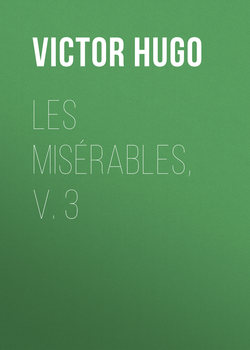Читать книгу Les Misérables, v. 3 - Victor Hugo, Clara Inés Bravo Villarreal - Страница 13
BOOK I
PARIS STUDIED IN ITS GAMIN
CHAPTER XIII
LITTLE GAVROCHE
ОглавлениеEight or nine years after the events recorded in the second portion of this story, there might be noticed on the Boulevard du Temple and in the regions of the Château d'Eau, a boy of about eleven or twelve years of age, who would have tolerably well realized the ideal of a gamin as sketched above, had he not had, with the smile of his age on his lips, a heart absolutely gloomy and void. This child was dressed in a man's trousers, but he had not got them from his father, and a woman's jacket, which did not come from his mother. Some persons had clothed him in rags out of charity. Yet he had a father and a mother, but his father did not think of him and his mother did not love him. He was one of those children worthy of pity before all, who have father and mother and are orphans.
This child was never so comfortable anywhere as in the street, for the paving-stones were less hard to him than his mother's heart. His parents had kicked him out into life, and he had simply tried his wings. He was a noisy, pale, active, sharp, impudent lad, with a cunning and sickly look. He came and went, sang, played at hop-scotch, searched the gutters, pilfered a little, but gayly, like cats and sparrows, laughed when he was called a scamp, and felt angry when called a thief. He had no bed, no bread, no fire, no love: but he was happy because he was free. When these poor beings are men, the mill of social order nearly always crushes them: but so long as they are children they escape because they are small. The slightest hole saves them.
Still, abandoned as this child was, it happened every two or three months that he said, – "Well, I'll go and see mamma." Then he quitted the boulevard, the circus, the Porte St. Martin, went along the quay, crossed the bridge, reached the Salpêtrière, and arrived where? Exactly at that double No. 50-52, which the reader knows, – the Maison Gorbeau. At this period No. 50-52, which was habitually deserted and eternally decorated with a bill of "Lodgings to Let," was, strange to say, inhabited by several persons who had no acquaintance with each other, as is always the case in Paris. All belonged to that indigent class which begins with the last small tradesman in difficulties, and is prolonged from wretchedness to wretchedness to those two beings to whom all the material things of civilization descend, – the scavenger and the rag-picker.
The chief lodger of Jean Valjean's day was dead, and her place had been taken by another exactly like her. I forget now what philosopher said, "There is never any want of old women." This new old woman was called Madame Burgon, and had nothing remarkable in her life save a dynasty of three parrots, which had successively reigned over her soul. The most wretched of all the persons inhabiting the house were a family of four persons, father, mother, and two nearly grown-up daughters, all four living in the same attic, one of the cells to which we have alluded.
This family offered at the first glance nothing very peculiar beyond its poverty; and the father, on hiring the room, stated that his name was Jondrette. A short time after he moved in, which had borne a striking resemblance – to employ the memorable remark of the chief lodger – to the coming in of nothing at all, this Jondrette had said to the woman, who, like her predecessor, was also portress and swept the stairs, "Mother So-and-so, if any one were to ask by chance for a Pole, or an Italian, or perhaps a Spaniard, I am the party."
This was the family of the merry little vagabond. He joined it, and found distress, and, what is sadder still, not a smile; a cold hearth and cold heart. When he entered, they asked him, "Where do you come from?" and he answered, "From the street: " when he went away, "Where are you going?" and he answered, "To the street." His mother would say to him, "What do you want here?" The boy lived in this absence of affection like the pale grass which grows in cellars. He was not hurt by its being so, and was not angry with any one: he did not know exactly how a father and mother ought to be. Moreover, his mother loved his sisters.
We have forgotten to mention that on the boulevard the lad was called Little Gavroche. Why was he called Gavroche? Probably because his father's name was Jondrette. Breaking the thread seems the instinct of some wretched families. The room which the Jondrettes occupied at the Maison Gorbeau was the last in the passage, and the cell next to it was occupied by a very poor young man of the name of Monsieur Marius. Let us state who this Monsieur Marius was.
